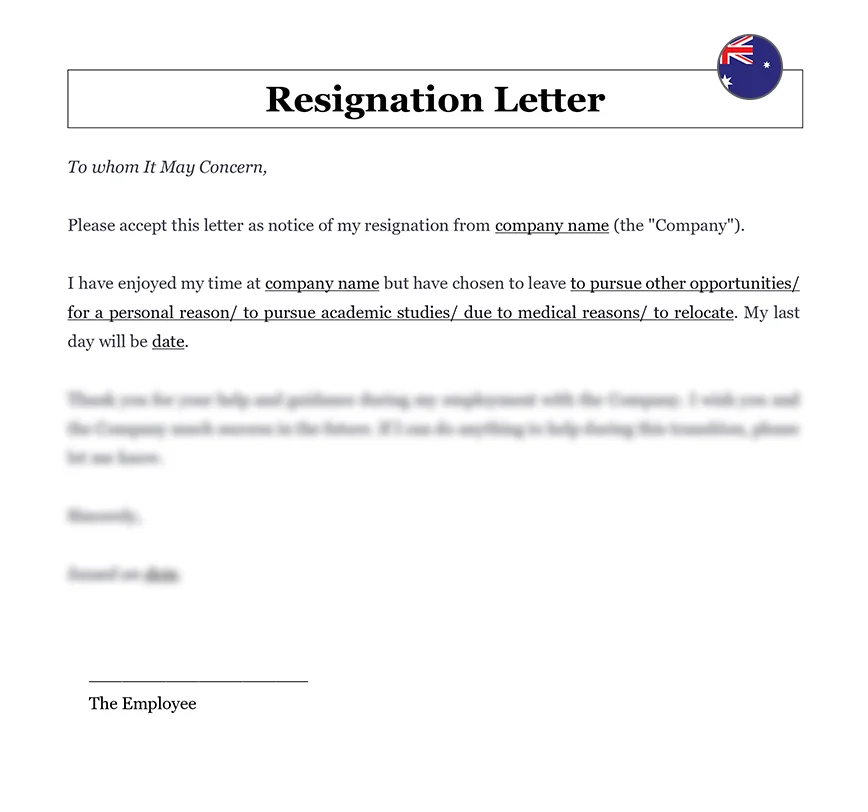Understanding the Importance of a Resignation Letter
An Employee Resignation Letter is a crucial document that formalizes your decision to leave a company. It’s not just a courtesy; it’s a legal requirement that helps protect both the employer and the employee. The letter serves as official notice, detailing your intent to resign, and it helps avoid potential disputes. Whether you’re stepping down from a position due to career growth or personal reasons, using a clear and well-drafted Employee Resignation Letter ensures a smooth transition and preserves professional relationships.
Review Your Employment Contract
Before you even think about drafting your Employee Resignation Letter, it’s crucial to review your Employment Contract. The contract usually outlines the notice period required before you can officially leave your job. This period varies depending on your role, the length of your employment, and the terms agreed upon when you were hired. Understanding these terms will help you avoid any legal pitfalls during your resignation process. Similar to how a Service Agreement defines the obligations between parties
Crafting a Professional Resignation Letter
When drafting your Employee Resignation Letter, make sure it includes the following elements:
1. Date of Submission: The date on which you submit your resignation letter.
2. Statement of Resignation: A clear statement indicating that you are resigning from your position.
3. Notice Period: The duration of your notice period, as per your employment contract.
4. Last Working Day: The date of your last working day, based on the notice period.
5. Gratitude: A brief expression of gratitude for the opportunities provided by the employer.
6. Contact Information: Your contact details for any follow-up after your departure.
Delivering Your Resignation Letter
Once your Employee Resignation Letter is ready, you need to deliver it in a manner that aligns with your company’s policies. Typically, this involves handing the letter directly to your immediate supervisor or the HR department. Some companies may require a digital submission through an internal HR system. Ensure that you follow the specific guidelines laid out by your employer to avoid any misunderstandings. Just as following the correct legal procedures is vital when Issuing Work Certificates in Australia
Navigating the Notice Period
During the notice period specified in your Employee Resignation Letter, you are still legally employed and must continue to fulfill your job responsibilities. This period allows the employer to find a replacement and ensures a smooth transition of your duties. It’s important to maintain professionalism and focus during this time, even if you are eager to move on to your next opportunity. The notice period functions similarly to a Garden Leave period, during which you are still employed but are restricted from working for competitors
Finalizing Exit Procedures
As your final working day approaches, there are several exit procedures that you need to complete:
| ➤ Return Company Property: Ensure that you return all company property, including laptops, mobile phones, and access cards. |
| ➤ Handover of Duties: Complete a thorough handover of your duties to your replacement or to a designated colleague. |
| ➤ Exit Interview: Participate in an exit interview if your company requires one, providing feedback that can help improve the workplace for future employees. |











